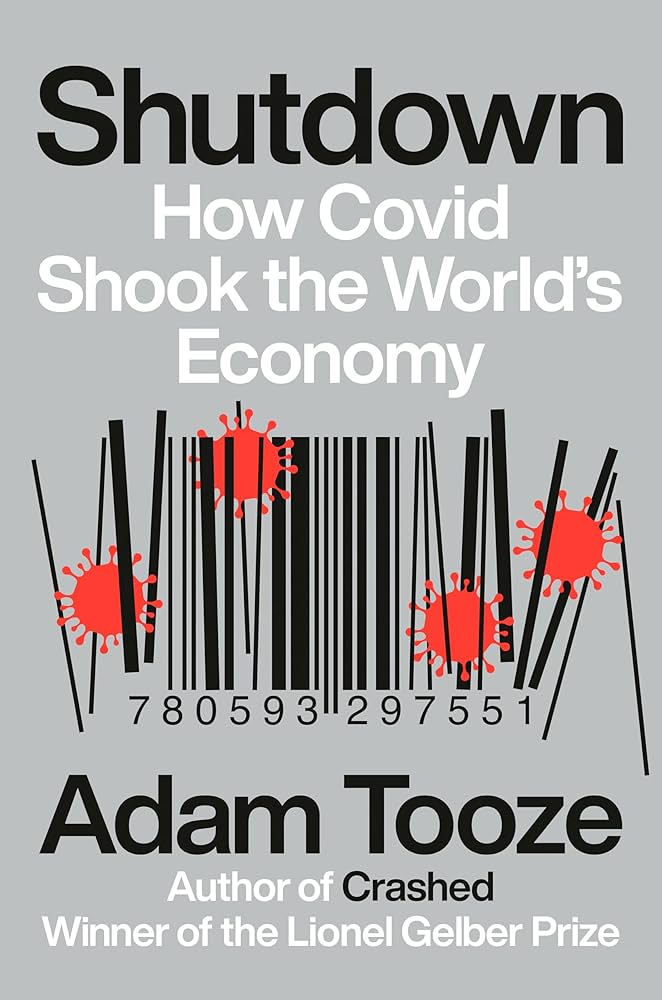The neoliberal era had always been shadowed by inconvenient truths. By 2020, however, these realities had moved from the periphery of elite consciousness into its very center. In March of that year, neoliberalism’s morbid symptoms conspired to form what the historian Adam Tooze calls a “polycrisis” — a complex web of simultaneous epidemiological, financial, democratic, ecological, and geopolitical crises that induce and magnify each other.
Tooze’s new book, Shutdown: How COVID Shook the World’s Economy, is an instant history of 2020’s polycrisis. In it, he offers a panoramic survey of the COVID pandemic’s first year, tracing the spread of viral and financial contagions across borders and over time. Like Tooze’s last book, a chronicle of the decade following the 2008 crash, Shutdown offers a primer on the mechanics of a global financial panic, the techniques that central bankers deployed to contain it, and the political events that ensued. Laced through these taut synopses is a meditation on a grand historical question: Did 2020 mark the end of the world economic order as we’d known it since 1980? And if so, what precisely is taking neoliberalism’s place?
On one level, Shutdown narrates the 21st century’s rebuke of neoliberal triumphalists like Dornbusch (who is quoted in the book’s introduction).
Not only did last year’s crises contradict their rosier prognostications for the new millennium, but the policy response to the COVID crash repudiated their core convictions. Central banks across the world facilitated massive deficit spending by buying up their own governments’ bonds. Economic growth and employment took clear priority over the preemption of inflation. Global capitalism’s flagship institutions did not just tolerate such fiscal laxity; they evangelized for it. As Tooze notes, 2020 “would witness the head‐turning spectacle of the IMF scolding a notionally left‐wing Mexican government for failing to run a large enough budget deficit.”
And yet Tooze argues that these unorthodox interventions, if radical in theory, were conservative in effect. For all its laudable achievements, the policy response to the COVID crash fortified pre-existing inequalities, and the invidious growth model that produced them. Despite the private sector’s newly conspicuous underinvestment in public health and decarbonization, democratic states barely increased their authority over economic development. The pandemic had eviscerated neoliberalism as a macroeconomic orthodoxy and utopian ideology. Nevertheless, as a system of power, it persisted.
